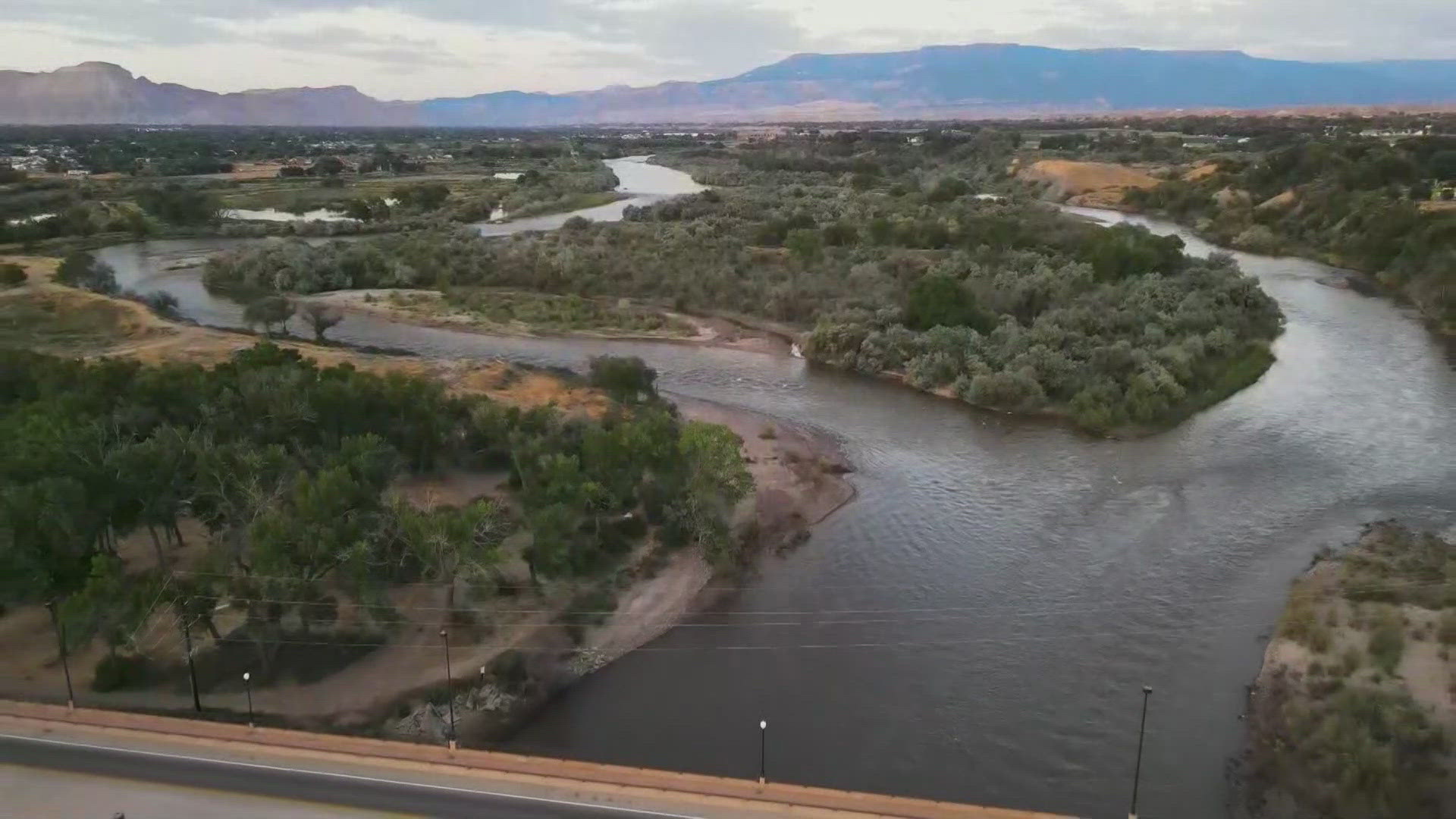GRAND JUNCTION, Colo. — Larvae from an invasive species of mussel were found in three samples taken on the Western Slope earlier this month, Colorado Parks and Wildlife (CPW) officials said.
The first sample was taken July 1 from the Government Highline Canal near Clifton. The sample was sent to CPW's Aquatic Nuisance Species lab in Denver, and it confirmed that a planktonic-stage larva of the zebra mussel was found, CPW said in a release.
Two other plankton samples were taken from the Colorado River upstream from the Grand Valley Water Users Canal diversion. Both of those samples contained single zebra mussel veligers, CPW said. A veliger is the name of the planktonic larval stage of the mussel, according to scientists.
“This challenging discovery has ecological and economic impacts not only on the Grand Valley but potential statewide impacts as well," CPW Director Jeff Davis said.
Zebra mussels pose a significant risk to water infrastructure and native fish populations, CPW said.
“This is an issue that could potentially impact every single citizen here in the state of Colorado whether you are a recreator, and whether you are an irrigator, or even if you’re somebody that just drinks water,” said CPW's Invasive Species Program Manager Robert Walters. “This has the potential to impact you on a personal level. So we again should all do our part to make sure that we are doing everything that we can to make sure that we are protecting our water that we all so dearly love and depend upon.”
The female mollusks can produce up to 1 million eggs in a spawning season, officials said. The mussels, as they mature, then affix themselves to surfaces and are extremely hard to remove, specialists said. The mussels' swift procreation and bonding to surfaces can lead to clogged water infrastructures creating long-term problems, CPW said. They are working on finding where the zebra mussels are coming from.
“We are really trying to understand the extent of the population,” Walters said. “First and foremost, we want to figure out where these veligers are coming from. It’s not immaculate conception. They are coming from some immediate source, and beyond that, we want to know how far downstream these extend and how far within the canal system these are already established.”
"This news is devastating,” said Grand Valley Water Users Association General Manager Tina Bergonzini. “Having our canal and the Colorado River test positive increases the threat of this invasive species and could impact everyone in the Grand Valley. From irrigation to drinking water, the ramifications cannot be underestimated or overstated."
Bergonzini said the impacts are far reaching and expensive.
“If you like to drink water out of your tap, it will impact you. If you like to take a shower, it will impact you,” Bergonzini said. “It could cost more money to get your irrigation water. It could cost more money to get your municipal water, you know, it could affect so many things.”
Fish populations in the Colorado River will also be negatively affected, CPW said. Mussels filter feed, which strips prey items, such as plankton, from the water.
Wildlife officials said slower-moving sections of the Colorado River could be especially prone to invasion.
Anyone boating, floating, paddling or fishing in the Colorado River is being told to clean, drain and dry their watercraft and equipment after they get out of the river.
CPW said it will be posting signs alerting the public of the river status from river access points from De Beque Canyon to the Loma Boat Ramp.
“Detecting mussels in the Colorado River highlights how critical it is for boaters, paddlers, anglers, and any person recreating in Colorado’s waters to do their part in preventing the spread,” CPW's Invasive Species Program Manager Robert Walters said.
While no adult zebra mussels have been found, CPW now considers the waters where larva were found as "suspect" for the mollusk's presence.
Increased testing is taking place to determine if the suspect classification should be changed to positive, meaning two or more samples detect mussel veligers.

